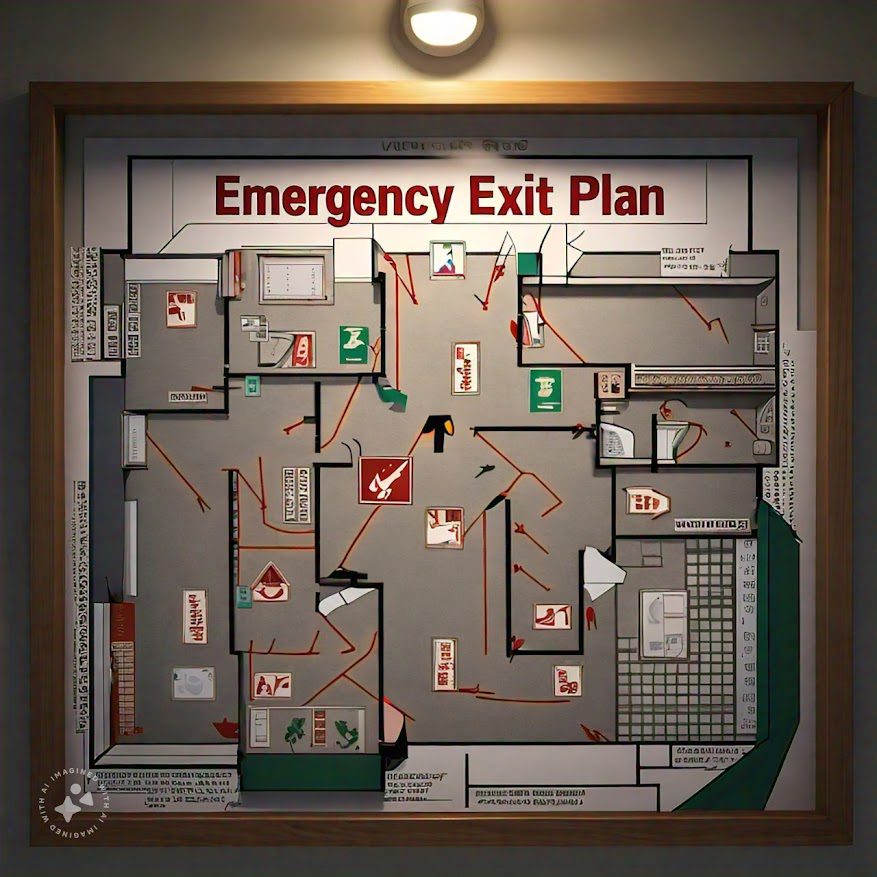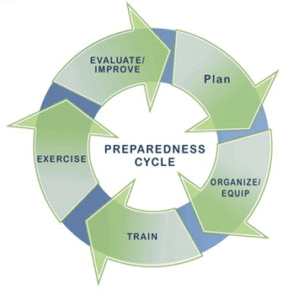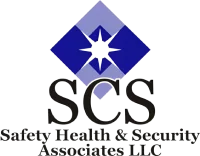Emergency Response Plans
What is a Workplace Emergency?
A workplace emergency refers to an event that endangers employees, clients, or the general public; interrupts or halts operations; or inflicts physical or environmental harm. Such crises can be natural or artificial in origin, encompassing events like hurricanes, tornadoes, earthquakes, floods, wildfires, severe winter conditions, chemical accidents, disease outbreaks, biological agent releases, nuclear or radiological explosions, and various other hazards. Many of these emergency situations can be foreseen during the planning phase, which enables employers and workers to prepare for other unexpected scenarios as well.
The initial response to an emergency is crucial. Quick and decisive actions, along with timely warnings, can protect lives, reduce structural and property damage, and enhance overall resilience. Every organization should create and put into practice an emergency plan designed to safeguard employees, contractors, and visitors. Planning in advance will help everyone to know what to do, where to go, should an emergency occur.
Does my Company Need an Emergency Response Plan?
Yes, your company should have an ERP. It is employer’s responsibility to provide a safe and healthful workplace. Having an Emergency Response Plan (ERP) is crucial for any company, regardless of its size or industry. OSHA does have some requirements for emergencies, and they can be found in 29CFR1910 and 29CFP1926. Additional information can be found on OSHA’s website. Some industries are required to have an ERP because of the shear nature of the business. So why should your company have an ERP?:
- Employee Safety: An ERP ensures that employees know what to do in case of an emergency, which can save lives.
- Regulatory Compliance: Many industries are required by law to have an ERP in place to comply with safety regulations.
- Minimizing Damage: A well-prepared response can help minimize damage to property and assets.
- Business Continuity: An ERP helps ensure that your business can continue operating or quickly resume operations after an emergency.
- Reputation Management: Proper handling of emergencies can protect your company’s reputation and build trust with employees, customers, and stakeholders.

Because the Emergency Response Plan is a detailed, organized approach to handling unexpected and potentially dangerous situations. Here is a breakdown of what it typically includes:
What Does an ERP Include?
- Risk Assessment: Identifies potential emergencies that could affect the organization, such as fires, natural disasters, medical emergencies, or workplace violence.
- Response Procedures: Outlines specific actions to take during different types of emergencies. This includes evacuation routes, shelter-in-place procedures, and lockdown protocols.
- Roles and Responsibilities: Assigns specific roles to employees, such as emergency coordinators, first aid responders, and communication officers. This ensures everyone knows their duties during an emergency.
- Communication Plan: Details how to communicate with employees, emergency services, and other stakeholders during an emergency. This includes methods for alerting people and providing updates.
- Training and Drills: Regular training sessions and drills to ensure employees are familiar with the plan and can act quickly and effectively in an emergency.
- Resource Management: Lists necessary resources and equipment, such as first aid kits, fire extinguishers, and emergency contact lists, and ensures they are readily available and maintained.
- Recovery Plan: Outlines steps to take after an emergency to resume normal operations as quickly as possible. This includes assessing damage, supporting affected employees, and restoring business functions.

Emergency Response Plans encompasses a wide range of actions and protocols designed to minimize harm, save lives, and protect property during crisis situations. It involves various stakeholders, including first responders, medical personnel, and community members working together to address immediate threats and restore normalcy.
What type of Emergencies should we plan for:
- Natural disasters (hurricanes, earthquakes, floods)
- Medical emergencies
- Fire incidents
- Chemical spills or hazardous material releases
- Terrorist attacks
- Active shooter situations
Need Help Creating an Emergency Response Plan?
Creating an Emergency Response Plan can be overwhelming, especially for those who are not used to developing them. SCS Safety Health and Security Associates LLC can help your company implement emergency response plans to ensure the safety and health of your employees. Our team has extensive experience that is helpful during critical operations.
One of the trainings that is offered is AVERT – Active Violence Emergency Response Training gives you the tools to understand how to recognize warning signs, react quickly in an active shooter situation, and learn how to control bleeding in life-threatening situations. AVERT is active shooter response training with the addition of techniques on how to stop the bleed of victims.

For more information about how SCS Safety Health & Security Associates can help your company develop an Emergency Response Plan, obtain AVERT Training, execute and practice your ERP, please give us a call at 703-779-7330 or contact us at info@scssafetyhealth.com
Recent Posts
- National CPR & AED Awareness Week 2025 June 2, 2025
- Cultivating a Thriving Safety Culture: A Roadmap for Your Company May 17, 2025
- Embracing Safety in the New Year: A Fresh Start for Construction and Industrial Businesses December 30, 2024
- Emergency Response Plans November 27, 2024
- Safety Consultants September 9, 2024
Categories
- CPR AED (2)
- Forklift Safety (1)
- Safety (4)
- Uncategorized (1)
